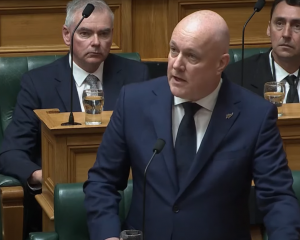
The government's social housing agency is set to cut approximately 330 jobs.
It is understood some of these come on top of previously announced cuts at the agency, in a second round of restructuring.
Staff at Kāinga Ora will get a briefing from management on Wednesday afternoon.
The agency has previously announced 232 roles were to go across a range of teams.
That included a proposal to more than halve the number of staff on its Te Kurutao Group Māori team which it set up to meet Māori housing needs and fulfil Treaty of Waitangi obligations.
RNZ understands that today it is possible there will be further job cuts.
A staffer said the mood at the agency was terrible.
They said the chief executive was slated to brief staff about 1.15pm today, with pre-announcement briefings with individual business groups to be held before then.
Kāinga Ora said in a statement it was working with teams across the organisation to "achieve efficiencies and identify potential savings".
It said it was committed to making sure staff were the first to learn of any proposed changes, and supporting them.
Kāinga Ora employed almost 3300 staff as of April 2023.
Kāinga Ora chief executive Andrew McKenzie resigned in July this year and will receive a payout of around $365,000 as compensation for notice and redundancy. He is set to leave the organisation in October.
The government has made a number of changes at its social housing agency and signalled more would be on the way, in response to a recent highly critical review chaired by Sir Bill English.
It concluded the agency was underperforming and not financially viable.
Five of seven board members are also going.
Prime Minister Christopher Luxon said Kāinga Ora needed to be clearer on its strategy and have better financial management.
In July, Housing Minister Chris Bishop released a letter of expectations for the Kāinga Ora board with financial sustainability the top priority followed by delivery on wider government objectives, and "continued delivery with an enhanced focus on doing so in a fiscally responsible way".
The month before Bishop had said that Kāinga Ora was "underperforming and not financially viable" in its current state, that its social housing problem was not delivering the results New Zealand needed and that it was "lacking in transparency and accountability".













